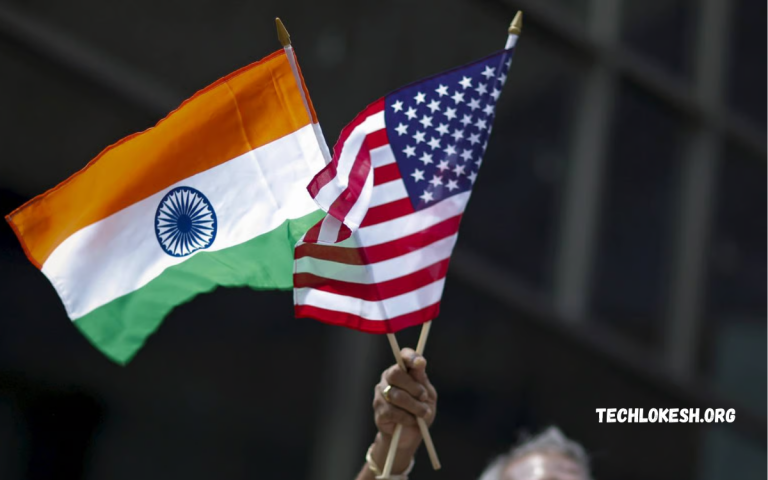The United States has reportedly opted to cancel its upcoming trade talks with India this August, bringing a pause to discussions that were anticipated to bolster economic relations between the two nations. According to sources, the choice follows mounting differences over major trade matters, including market entry, duties, and investment policies.
Washington and New Delhi have spent months working to resolve disputes and explore ways to expand bilateral trade, which stands at over $190 billion annually. The August meeting was considered crucial for addressing long-standing concerns.
U.S. Cancels August Trade Talks With India Amid Ongoing Disputes
The United States has called off its proposed trade discussions with India, which were slated for August, according to recent reports. The announcement highlights the persistent obstacles both nations face in reaching a consensus on key economic matters, including tariffs, market access, and investment guidelines.
The talks were to provide Washington and New Delhi a platform to address long-standing disagreements and explore expanding the already $190 billion-plus bilateral trade.
The cancellation has raised concerns among businesses and commentators who fear that the setback could impede progress. Observers point out that areas such as farming, digital commerce, and technological cooperation remain particularly divisive, making consensus difficult for the two parties.
Washington Calls Off Planned Trade Meeting With New Delhi
The United States has reportedly suspended its planned trade meeting with India, originally scheduled for August. This action follows ongoing disagreements over fundamental trade matters, including tariffs, market entry, and regulatory frameworks, highlighting continued discord in the economic partnership.
The meeting aimed to provide a platform for both countries to address longstanding trade disputes and explore avenues for expanding economic cooperation. With bilateral trade already exceeding $190 billion annually, the talks were viewed as a crucial step toward strengthening ties and addressing key concerns on both sides.
Industry specialists and observers have voiced concern that the cancellation could hinder progress on essential trade negotiations, especially in fields such as agriculture, technology, and digital commerce. Enterprises on both sides had hoped the conversations would clarify and possibly resolve persistent trade hurdles.
Trade Tensions Rise as U.S. Drops August Talks With India
The United States has reportedly withdrawn from its trade talks with India, which were set for August, a development that has heightened concerns about the escalating strain in the bilateral economic partnership. Key disputes over duties, market entry, and investment policy are believed to have contributed to the abrupt decision, indicating that significant trade challenges remain unsettled.
The meeting was seen as a crucial opportunity for both nations to address recurring trade disputes and enhance cooperation. With trade over $190 billion per year, the talks were expected to ease tensions and offer clarity for businesses.
Read Also: Finance Minister eyes further cut to the Key Policy rate from 11%
Report: U.S.-India Trade Negotiations Put on Hold
Trade negotiations between the United States and India have reportedly stalled, with the planned August talks scrapped amid recurring disagreements over tariffs, market access, and investment rules. The move highlights lingering obstacles in the bilateral economic alliance and suggests that core trade issues remain unresolved.
The meeting was viewed as a crucial opportunity for both nations to address significant disputes and deepen economic ties. With trade over $190 billion annually, the talks were expected to boost business clarity and momentum.
Experts advise that the postponement could hinder progress in vital areas, such as technology, farming, and digital commerce, where disagreements have been most notable. The cancellation is regarded as a disappointment for firms awaiting solutions to current trade impediments.
Cancellation of Talks Raises Questions About Future of U.S.-India Trade Relations
The recent cancellation of the United States’ planned trade negotiations with India has raised concerns about the future of one of the globe’s most important economic alliances. Scheduled for August, the session was anticipated to address persistent disputes over tariffs, market entry, and investment policies; however, reports suggest that lingering differences led to its unexpected termination.
The discussions were a key chance to strengthen trade above $190 billion annually and offer clarity for businesses facing longstanding disputes.
Industry experts caution that the cancellation could slow progress on critical sectors such as technology, agriculture, and digital services, where disputes remain particularly pronounced. For businesses on both sides, the pause introduces uncertainty about the pace and direction of future negotiations.
Frequently Asked Questions
Does this cancellation affect the broader U.S.-India relationship?
Officials have stressed that the broader strategic partnership remains strong, even if trade discussions face temporary setbacks.
What are the main points of disagreement between the two countries?
Key issues include tariffs, market access for goods and services, and investment regulations.
How are businesses affected by the cancellation?
Companies in both countries face uncertainty about trade barriers and future expansion opportunities.
Has either country responded publicly to the cancellation?
Both the U.S. and India continue to emphasize the importance of their economic and strategic partnership, though specific statements about the cancellation are limited.
What happens next for U.S.-India trade relations?
Observers expect both nations to seek common ground and resume talks, but progress may be slow due to the complexity of the issues.
Conclusion
The cancellation of U.S.-India trade talks highlights the ongoing challenges in their vital economic partnership. Both countries stress the strength of their strategic relationship, but tariffs, market access, and investment rules remain major sticking points.

